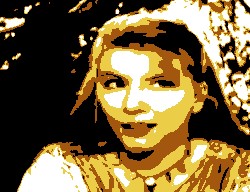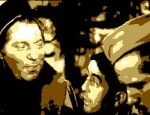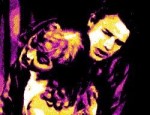Film Review

Whilst Jacqueline Pagnol (the director's stunningly beautiful wife) makes a captivating Manon and Raymond Pellegrin is convincing as the school teacher, it is the lesser characters which make this film, giving it its charm and sense of realism. Pagnol not only writes well for ordinary Provençal folk, he also has an unerring knack of bringing his characters alive through his choice of actors and the way in which scenes are staged.
For the most part, the film resembles more a theatrical production than a piece of conventional cinema, relying far more on dialogue than image to tell the story. A good example of this is where the tale of Manon's tragic past is related, not through the use of the more conventional cinematic device, the objective flashback, but through snippets of dialogue related by different characters from their own points of view. This is an approach which Pagnol used from his earliest films in the 1930s and which he had honed to perfection by the time he came to direct this film. Unfortunately, the film's distributors, Gaumont, were not as appreciative and, mindful of the reaction of a contemporary cinema audience, insisted that its director make substantial cuts to reduce the film to an “acceptable” runtime. The resulting cut down version was not a huge success and met with a lukewarm reaction from the critics of the day. In the 1960s, Pagnol restored the film to a version that was nearer to its original length.
In 1963, Marcel Pagnol published a two-part novel ("L'Eau des collines") based on his screenplay for this film. The first volume told the story of Manon's ill-fated father, Jean de Florette; the second volume was concerned with Manon's revenge and the discovery of her relationship with Papet. In 1986, Claude Berri adapted this novel for cinema, in two films featuring Gérard Depardieu, Daniel Auteuil and Emmaneulle Béart: Jean de Florette and Manon des sources. It is interesting to compare Berri's telling of the story with Pagnol's - the former using a far more visual approach that is more accessible to a mainstream cinema audience. Both films have their strengths and succeed in telling a poignant story with great skill and humanity, although Pagnol's version feels more genuine, partly because it does not overlook the humorous aspects of life.
© James Travers 2005
The above content is owned by frenchfilms.org and must not be copied.
Film Synopsis
In a small Provençal village, the locals tell a newly installed schoolteacher the story of Manon, a young shepherdess who lives a wild and solitary life in the surrounding hills. Manon is the daughter of a hunchback and a Russian opera singer who came to settle on a nearby farm about twenty years ago. The family was ostracised from the local community, and seemed to be cursed. Their land having no water, they were compelled to spend hours each day carrying water in pots to their land from the nearest source. The strain of this hard life killed both the hunchback and his young son. Devastated, Manon and her mother had no choice but to sell the farm to a neighbouring farmer, Ugolin, before moving to a secluded spot in the mountains. Since that day, Manon has been taunted and feared by the village folk, who suspect she is a witch. Then, one day, Manon learns the truth about the circumstances that led to the death of her father and brother. Soon after, the water supply to the village mysteriously dries up. Manon will finally have her revenge...© James Travers
The above content is owned by frenchfilms.org and must not be copied.
Similar Films
Here are some other films you may enjoy watching:Other related links:
Film Credits
- Director: Marcel Pagnol
- Script: Marcel Pagnol (novel)
- Cinematographer: Willy Faktorovitch
- Music: Raymond Legrand
- Cast: Edmond Ardisson (Ange, le fontainier), Henri Arius (Claudius, le boucher), Charles Blavette (Pamphile, le menuisier), Jean-Marie Bon (Cabridan), Marguerite Chabert (La mère de Polyte), Luce Dassas (La femme d'Ange), Daxely (Josias, frère de Jonas), Del Bosco (Jonas, frère de Josias), Édouard Delmont (Anglade), Alfred Goulin (Le grand Bossu), Marcelle Géniat (Baptistine), Jenny Hélia (Aricie), Christian Lude (L'ingénieur), Julien Maffre (Pétugue, le forgeron), Jeanne Mars (Nathalie), Marthe Marty (Sidonie), Milly Mathis (Amélie), Jean Panisse (Eliacin), Raymond Pellegrin (L'instituteur), Henri Poupon (Le Papet)
- Country: France
- Language: French / Occitan
- Support: Black and White
- Runtime: 240 min
- Aka: Manon of the Spring
The Golden Age of French cinema

The best of American cinema

The very best of German cinema
